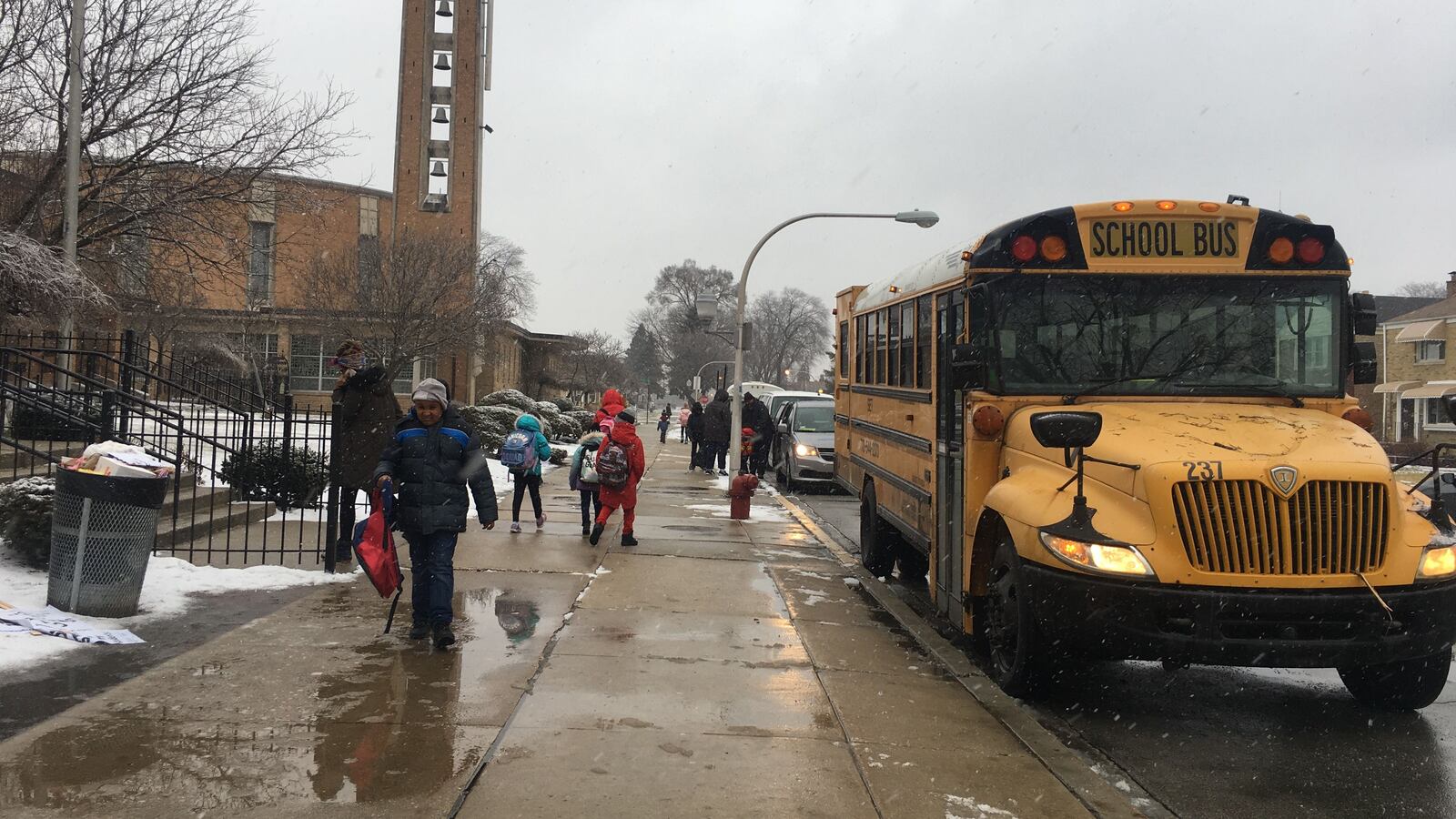For the first time, an agreement between Chicago Public Schools and its charters gives clear directions on how the independently run but publicly funded charter schools should report student allegations of sexual abuse.
After a 2018 Chicago Tribune series exposed widespread flaws in how the district has handled sexual abuse allegations by students for decades, Chicago Public Schools increased the ways students could report sexual misconduct in schools and worked to improve the handling of those complaints. Chicago Public Schools overhauled its sexual misconduct reporting system by opening an office dedicated to handling student complaints of misconduct by adults and other students, training Title IX representatives for all schools, and background checking all educators. The district also opened a reporting phone line.
But the central office has been slower to set policy among its 188 charters, which have their own leadership and boards of directors and serve tens of thousands of students in Chicago. Each charter network has its own internal system for reporting and investigating complaints of adult sexual abuse or harassment of students. Until this school year, none of the systems included reporting abuse or harassment allegations to the Inspector General’s Office.
The new agreement, known as a Memorandum of Understanding, says charter schools must report any student allegations against teachers, coaches, and other adults to the district’s inspector general; cooperate with any investigations; and consider all recommendations from the district to remove a staff member.
The document says charters must report any student-on-student allegations to the district Office of Student Protections, but doesn’t explicitly prohibit charters from carrying out their own investigations. Charters will also remain responsible for disciplining students, according to the agreement.
Charters are also instructed to appoint a Title IX representative for every campus, and those representatives are required to attend at least one annual training by the Office of Student Protection.
Experts say the new agreement, recently obtained by Chalkbeat, has a few blind spots. While charters are asked to refrain from investigating any adult-on-student allegations “without first discussing the need for such an investigation with OIG staff,” the agreement doesn’t require charters to report adult-on-student allegations to the Department of Child and Family Services, although state law mandates it as one of the first steps in an investigation.
A state law signed this summer suggests that schools refrain from interviewing a student in any detail about alleged sexual abuse or harassment by adults. Instead, in the case of adult-on-student allegations, they should wait for a forensic interview to take place at an accredited children’s advocacy center. The law also created a task force to continue to review best practice around sexual misconduct allegations in schools.
The memorandum also doesn’t explicitly prohibit charter networks from performing their own investigations into allegations of student-on-student abuse, even as the district’s investigative bodies do the same.
Under the agreement, the groups involved in an investigation of a student-on-student incident could include the police, state welfare agencies, the school district’s Office of Student Protection, the inspector general’s office, and the network. Multiple investigations could mean students would be interviewed multiple times. Experts say children should be interviewed about potentially traumatic experiences as few times as possible.
“We caution against repeated interviews of child victims due to the negative impact this has on young people’s healing as well as the possibility of compromising the integrity of evidence collection,” said Char Rivette, executive director of Chicago Children’s Advocacy Center, which has partnered with the district on retraining teachers and principals since last year.
Advocates also say they are concerned that investigations done within charter networks could be compromised because networks might be concerned about the public relations ramifications of a finding of abuse by staff in their schools.
Even as advocates say there is still room for improvement in strengthening charter reporting of allegations, an increased focus on training and educating charter networks in the past months has shrunk the discrepancy in student reporting between charters and district-run schools.
According to the Office of the Inspector General in Chicago Public Schools, a count taken last winter found that non-charter schools reported three times as many cases per 100,000 students as charter schools.
In April, charter schools also had disproportionately few complaints compared to publicly run schools, in part because the district had failed to give the 121 charter schools under its jurisdiction clear directions on reporting abuse to the inspector general. From May 2019 through September 2019 this year, that number shrank by nearly half to 1.6 times as many reports from district-run schools as charters.
The new MOU adds the measures Title IX practices already in place at individual networks. Noble, Acero and Chicago International Charter Schools, three of the city’s biggest networks, all require teachers to complete training for mandated reporters and on preventing sexual abuse. That training is mandated by networks’ agreements with the school district.
The district held training over the past year for all Title IX representatives at charter schools and charter principals.
Acero, which has 7,000 students in attendance at its 15 schools, has its own general counsel office that serves as a Title IX coordinator. Chief External Affairs Officer Helena Stangle said the network welcomes additional Title IX resources from the district. “Our goal is to swiftly complete thorough investigations that result in a just outcome. This remains a priority for Acero Schools and we will continue to work with the OIG to achieve this goal,” Stangle said.

